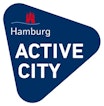How to do December Better
11 December, 2017

If the off-season brings you more confusion than clarity, read on for expert advice on fueling, strength training, and diet.
It's that time of year again—when we scale back our workouts, focus on strength, and reconnect with the people who sustain us through race season and still want to be around us after race season. If you're wondering what you should be doing with all your extra free time (in addition to holiday baking and turkey trots), we're here to help. We asked for your most pressing off-season related questions on social media and then consulted triathlon coach Jason Lentzke to help us navigate the downtime December brings.
Do I need to take an off-season and how long should it be?
Your off-season should last anywhere from two to three weeks before you begin your base phase of training. Your previous season’s length and the depth of your fatigue will dictate the length of your off-season. I recommend two weeks off from structured training. This doesn't mean you need to sit on the couch for two weeks. You can and should still stay active, just leave the GPS at home. Try something new and give your mind and body a break from your swim, bike, and run routine. After your two-week break, begin to incorporate some structured routine and start a base phase of training that includes strength work.
I walk 12-15 miles a day at my job—up and down hills as a mail carrier in Boulder, Colorado. If a person has a physical job, what they should do?
That's an impressive amount of walking and a tremendous way to build durability. Although you'll be moving quite a bit as you work, I would commit to taking 10-14 complete days off from training to kick-start your off-season. This doesn't mean that you have to deliver mail aboard a Segway! Continue to carry on with your typical routine; just don't follow a structured training schedule for two weeks. After that brief break away from swim, bike, and run training, get back into your multisport routine with short and frequent training sessions. As you ease back into things, plan your training so that your more challenging sessions are performed before the physical stress of work. As you get stronger and more durable, you will be able to perform sessions in the morning and evening.
I'd like to make improvements to my running. Should I sign up for a 10k race?
I recommend shorter, higher intensity run sessions to improve your lactate threshold and improve durability. Trail running is also a great way to develop strength, enhance lateral movement, range of motion while getting out of your comfort zone.
What should my diet consist of in the off-season?
Nutritionally navigating the off-season is tricky, as it likely corresponds with Christmas and New Years—the time of year to celebrate! This means the off-season can result in sliding down a slippery slope of too much indulging and weight gain, meaning you'll have big hurdles to overcome in the New Year.
Approach the holidays with a mindset of well-being. Celebrate health, time with family, and personal moments of holiday cheer. This doesn't mean you can't have that piece of apple pie. It simply means taking the focus off of food and putting it on health. This is a simple mental strategy to help you navigate the holidays without worrying about eating too much or the wrong foods. Pick and choose those foods that are most desirable to you, have a portion and move on. It's all about balance.
Should I take supplements to make up for what is lacking in my diet?
Supplements are just that—they supplement what you may be missing from real food. Consult with a Registered Dietitian to determine which supplements you may benefit from. However, if you eat a well-balanced diet, you probably don't need any.
Avoid extreme diets in the off-season—they simply aren't sustainable. Eat balanced, high-quality food in moderation and you will perform better and increase your stamina. Period. Nutrient timing is a huge part of the sports nutrition equation, so eat for nourishment and don't be afraid of carbs. If you are an athlete, your diet should be based around high-quality carbohydrates. Remember that all carbs are not created equal, so don't base your diet around carbs like sugary cereals.
How often should I strength train in the winter?
Even if your off-season begins with 10-14 days of complete rest or very light training, you can begin a strength program immediately after that time off. But be smart! The right approach depends on your limiters and weaknesses. Focus on large muscle group movements like squats, lunges, chest press, body weight dips, pull-ups, and deadlifts. Start with light weights and emphasize form before you increase load.
Since your swim, bike, and run sessions are going to be a bit shorter, you should have some extra time for the gym for the roughly eight weeks of base training. If time is still tight or you'd rather not spend time in the gym, you can perform sport-specific strength work in the pool, on the bike and run. How? Create drag by incorporating paddle and band work in the pool, low cadence/hill work on the bike, and hills on the run.
How should I fuel my workouts?
As you get back into some unstructured training, remember that you don't need to fuel every session like you're in the middle of a multi-hour training week. For sessions lasting less than 60 minutes, there's no need to fuel, just drink water. For longer sessions (2 hours or more) try to incorporate real food by giving your body a break from the gels, blocks, and bars and eat foods like nuts, bananas, grapes, dried fruit or really anything unpackaged to give your teeth and stomach a nice break from all the processed fuel you're used to. Be mindful that as your training load decreases, so does your caloric demand. You still need pre- and post-session calories, but you don't need that heaping glob of nut butter in your smoothie.
Jason Lentzke is a triathlon coach and owner of Toro Performance in Phoenix, AZ.











.png?h=106&auto=format)







.png?h=106&auto=format)




